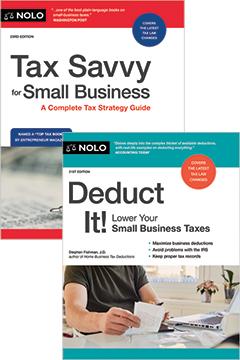Federal law requires businesses to report cash payments of more than $10,000 by completing IRS Form 8300 within 15 days of receiving the payment.
If your business handles large cash transactions, you need to be aware of special reporting requirements the IRS imposes on these transactions. While it may seem innocuous, failure to follow the rules can result in massive civil penalties and, in some cases, even criminal prosecution.
What Are the Reporting Requirements for Cash Transactions?
Federal law requires businesses to report cash payments of more than $10,000. Most, but not all, businesses are subject to this requirement. If you are a landlord, attorney, jeweler, auto dealer, loan shark, or nearly anyone involved in selling goods or services, you'll need to report cash payments of more than $10,000.
To meet the reporting requirement, you must complete Form 8300, Report of Cash Payments Over $10,000 Received in a Trade or Business. Form 8300 requires the payor's name, tax identification number, address, and identification form, among other items. You must file Form 8300 within 15 days after receiving the payment.
In addition to lump sum payments over $10,000, you also need to be on the lookout for installments of cash payments totaling more than $10,000. For instance, Mr. Moneybags comes in to your jewelry store to purchase a $12,000 watch. He gives you $4,000 to hold the watch that day. Two weeks later, he comes with an additional $4,000, and then pays the balance two weeks after that. Even though you received the money in a series of payments, it totals more than $10,000 so you must file Form 8300.
Cash doesn't just mean American dollars and cents, either. Cash includes foreign currency as well. In some circumstances, cash can also include cashier's checks, bank drafts, traveler's checks, and money orders. It does not include, however, a check drawn from someone's personal bank account.
Why does the IRS care if someone pays cash? Of course, it's not a crime to pay for something in cash. There could be legitimate reasons for doing so. But the federal government wants to keep track of large cash payments to combat money laundering and other crimes. Sometimes, individuals paying large sums of cash are engaged in illegal activities, like drug dealing or tax evasion.
How Do I File Form 8300?
There are two ways to file Form 8300. You can complete a paper copy and mail it to:
Internal Revenue Service, Detroit
Computing Center, P.O. Box 32621,
Detroit, Ml 48232
If you mail Form 8300, make sure you send it certified mail so there is proof it was timely filed. Alternatively, you can file Form 8300 online using FinCEN's Electronic Filing system. It can be accessed here. Whether you mail a paper copy or file online, make sure to keep a copy of exactly what was filed and when.
Severe Penalties
If you intentionally do not file a correct Form 8300 by the deadline, the penalties are severe. You can be hit with a penalty that is the greater of $25,000 or the amount of cash you received and were required to report. The maximum penalty is $100,000.
There are also potential criminal penalties for willfully not filing or for willfully filing a false Form 8300. The government can fine you personally up to $250,000 or $500,000 if your business is a corporation. If that's not enough to discourage filing false reports, the government can also sentence you up to five years in prison.
Even if you are merely negligent and not willful, the IRS can impose penalties. The penalty for not filing timely is $250 per return. If you file, but the information is not complete or it's not correct, the IRS can still impose a $250 penalty. So make sure you are not only filing Form 8300 timely but also that all the information contained in the form is complete and accurate.
Don't Forget the Annual Filing
In addition to filing Form 8300 15 days after receipt of the cash, there is also an annual filing requirement. You are required to provide a written statement to each person for whom you completed a Form 8300. The written statement needs to include: the name and address of your business, a name and contact person for your business, the total amount of cash received for the 12-month period, and a statement letting the person know you reported it to the IRS. The annual filing is due on January 31 of the year following the cash payment.
Keep Careful Records
It's not enough to simply file Form 8300 timely and complete the annual filing requirement. You must also keep careful records of what was filed and when. The IRS audits Form 8300s like they do any other tax form. If your records are insufficient, you could open yourself up to severe penalties.
For more information on Form 8300, see the IRS website.



